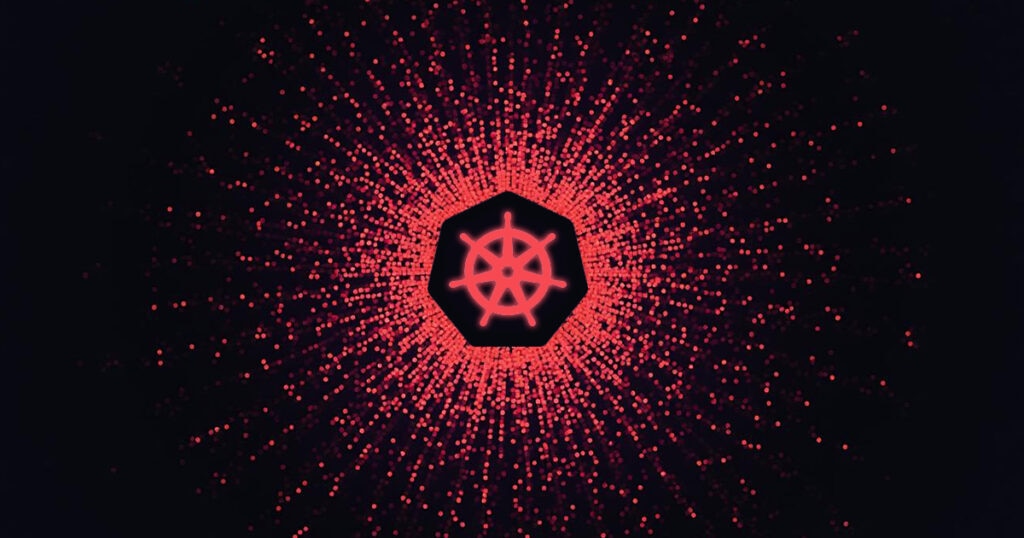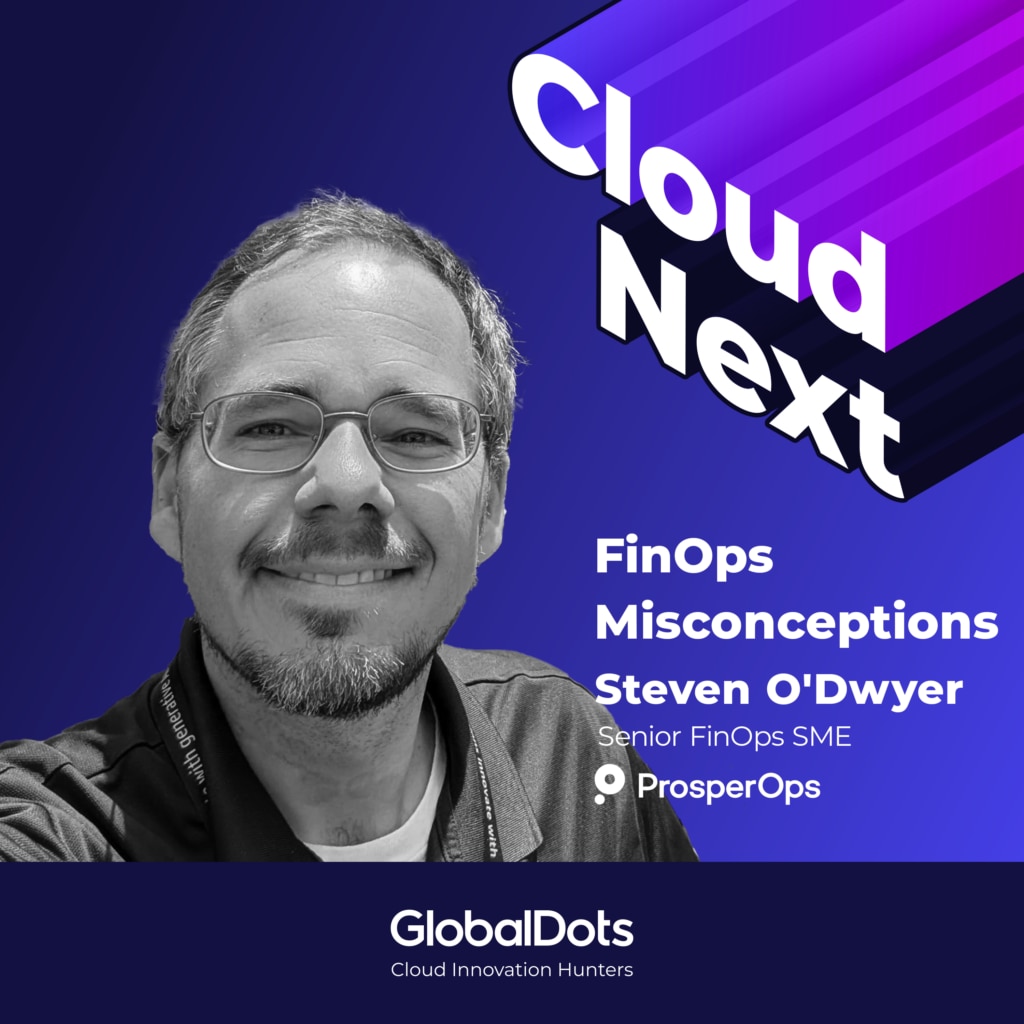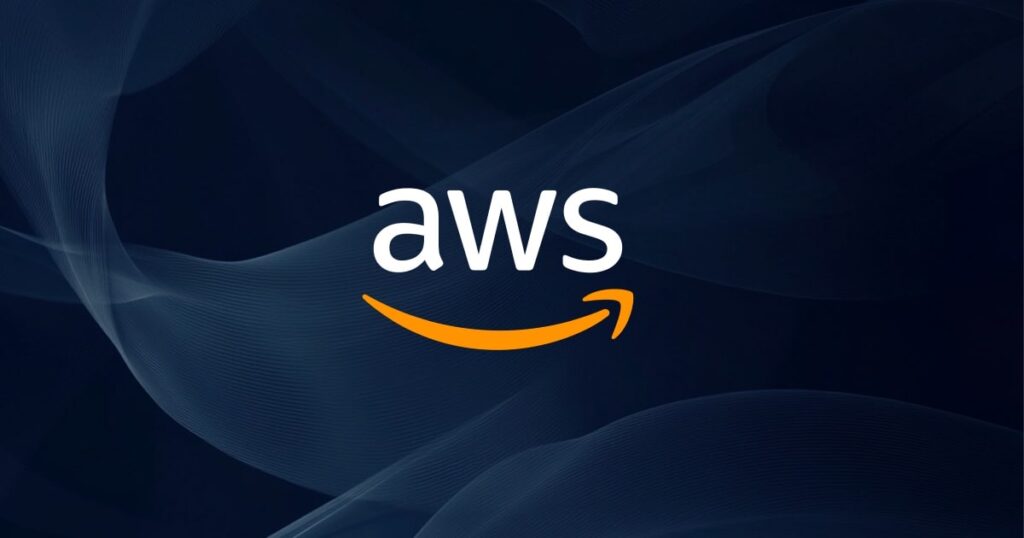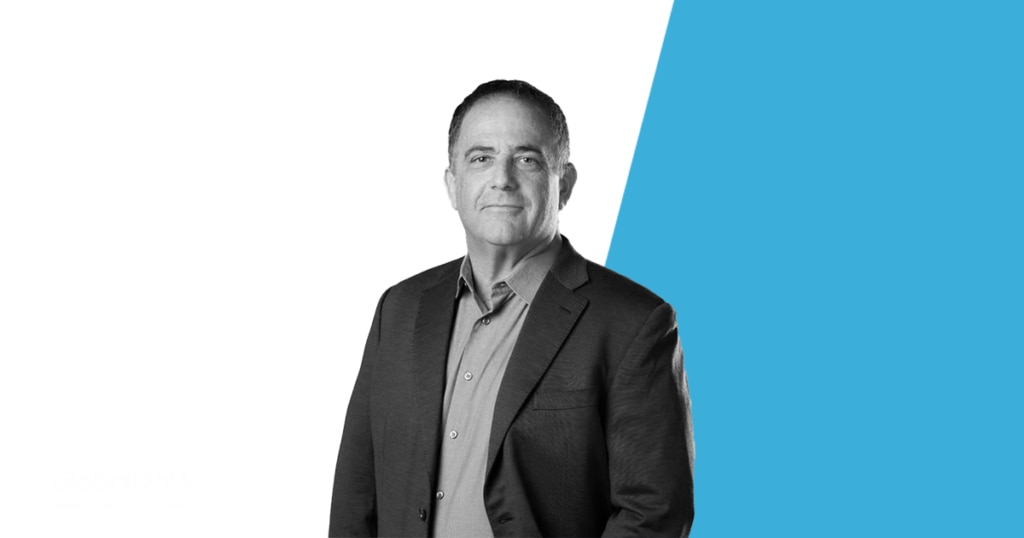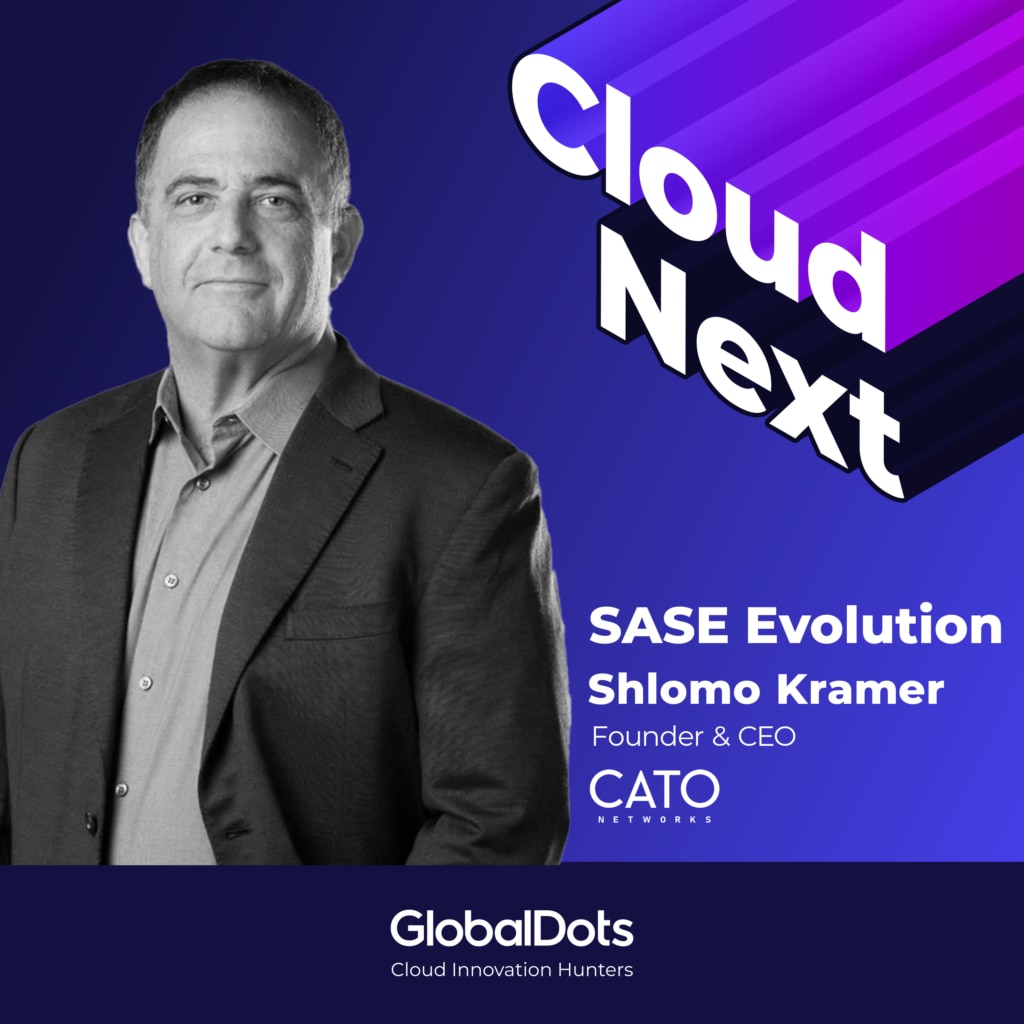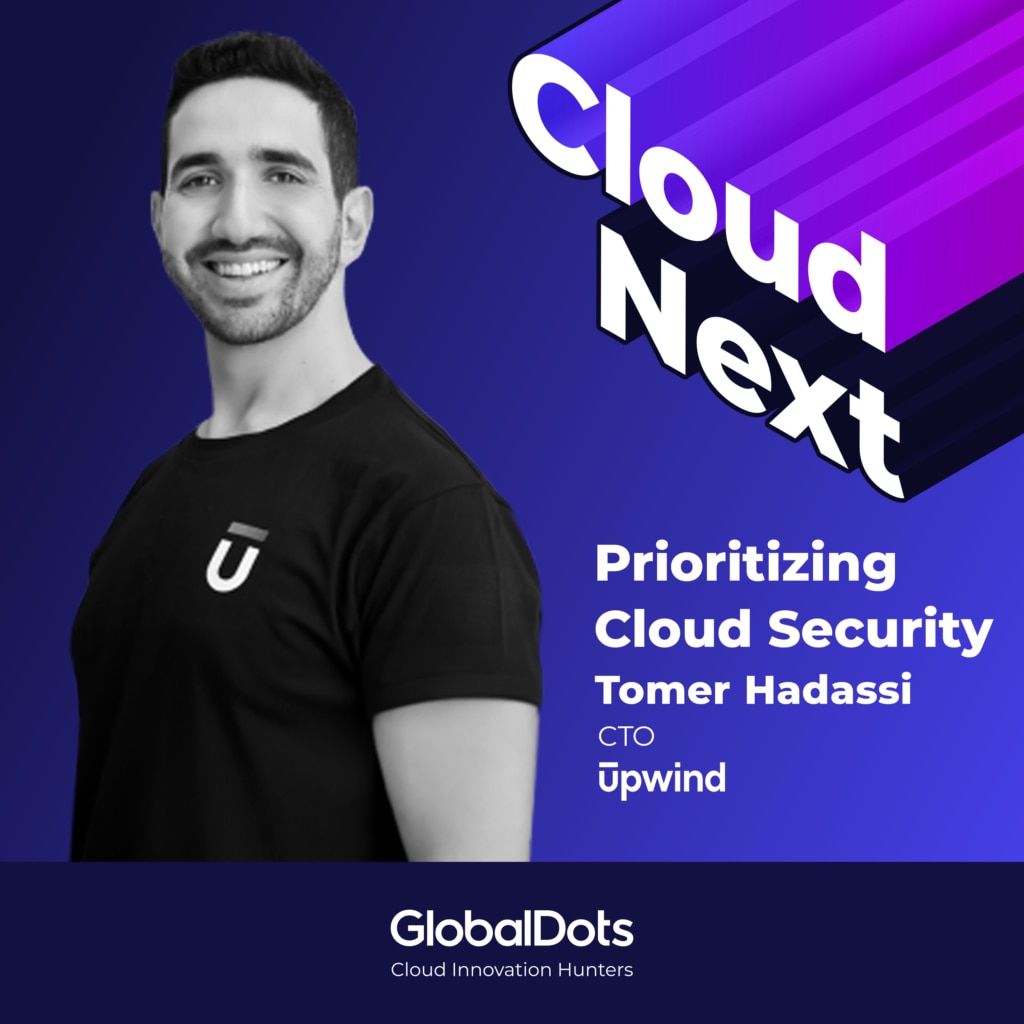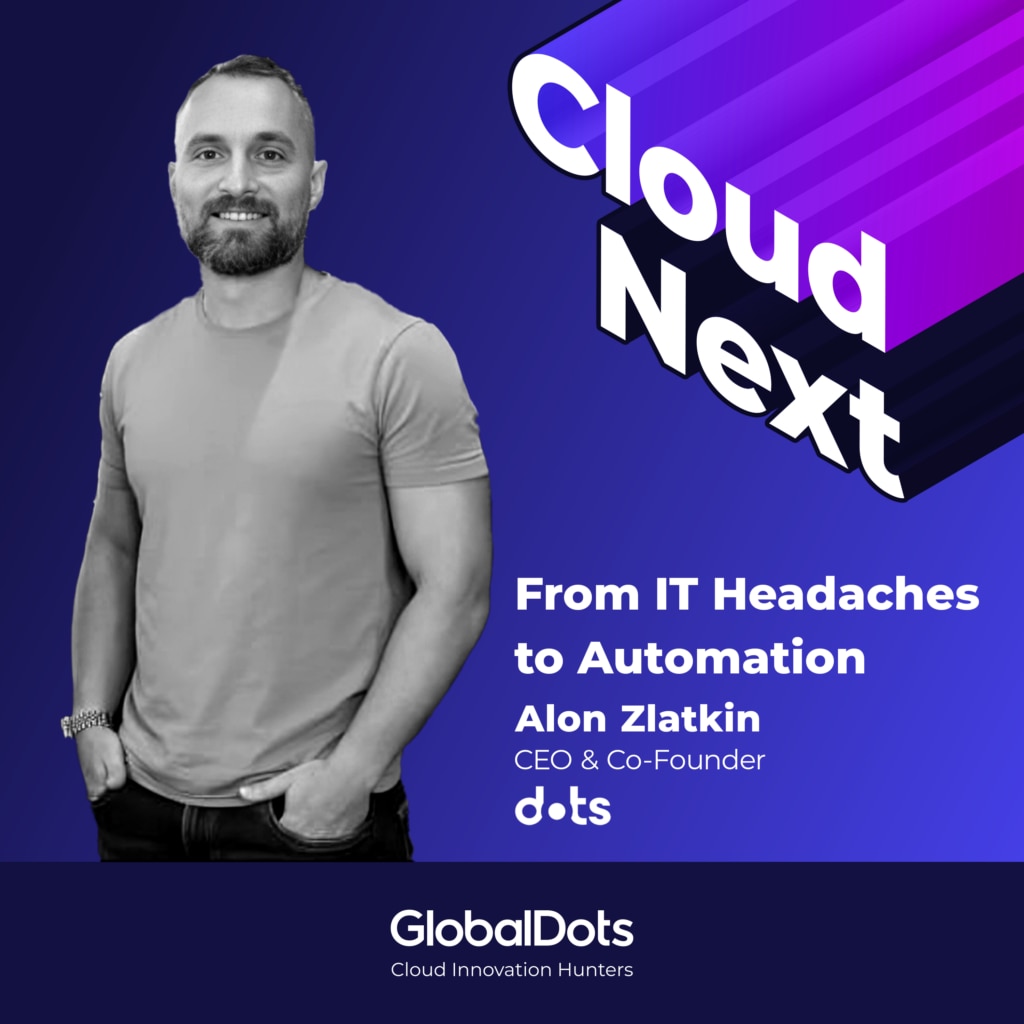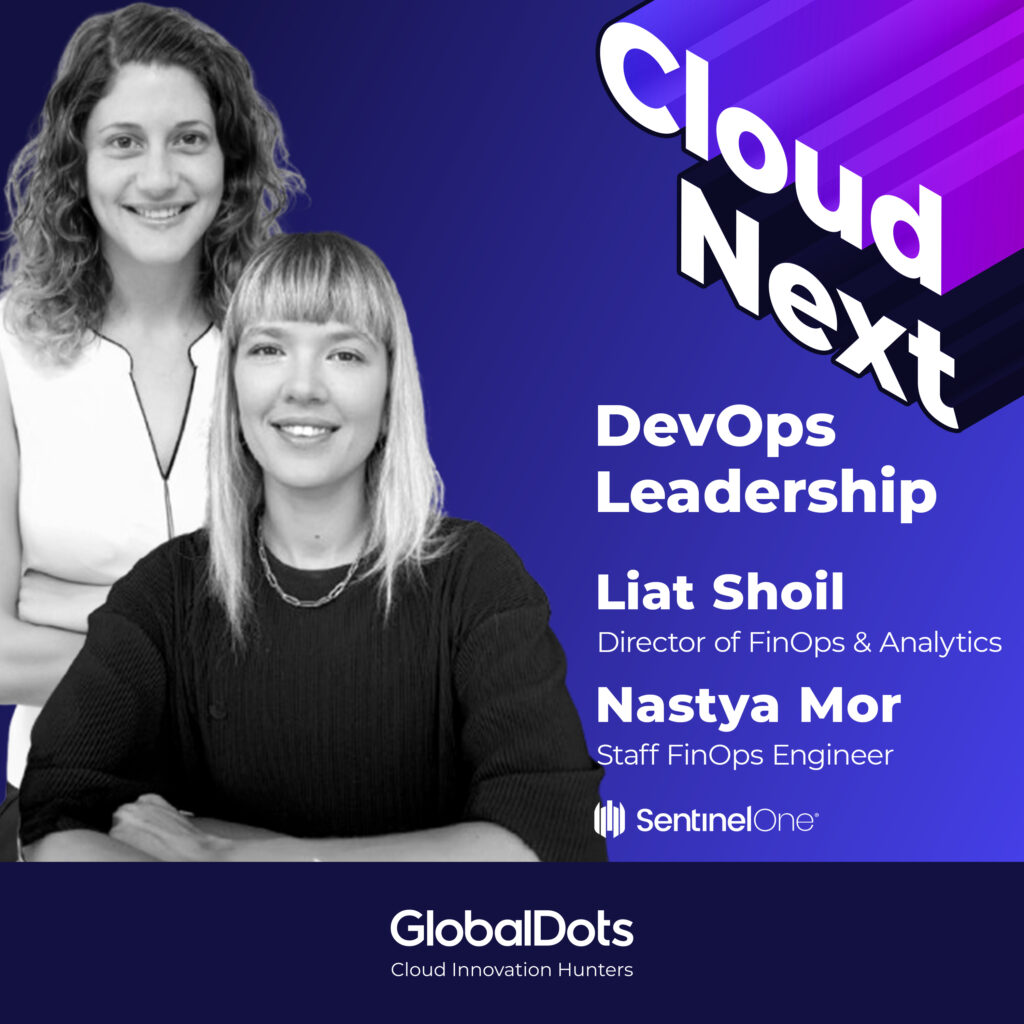This transcript was generated automatically by AI. If you find any mistakes, please email us.
Erez
0:00:00
I'm a very strong believer in a concept called the human machine team. I think the most important part are the people. We want to empower people with machines, of course, AI and other digital technologies, and make them work together as another member in the team.
Daniel
0:00:18
Hello, everyone. I'm Daniel Hanna, and you are listening to Business Leader Stories, the podcast. The only podcast where you can listen to real stories told by real business leaders. So without any further ado, let's go.
Daniel
0:00:33
Our guest today thrives in challenging places
Erez
0:00:35
and defines himself as a transformational leader. With over 20 years of experience in technology, Erez Rachmil is the Chief Technology Officer at Playtika. We talked about the upcoming challenges, AI, change management, and the five necessary steps to ensure a successful transformation. I'm Daniel Ohana. This is Business Leader Stories by GlobalDots, and this is our conversation with Erez Rachmel. Erez!
Erez
0:00:55
So nice to be here in Platica today. Welcome, welcome Daniel. How are you doing? Doing very well. I'm happy to be here. I'm also happy that you are here. We are happy to be here in Platica. For how many years you've been with Platica? Nine years. You know, it's interesting because these days we usually see people change jobs like every few years. So it intrigues me to ask you what made you stay here for so long? Up until Platica, I had a very diverse career.
Erez
0:01:33
I've been to large companies, small companies, startups. Up until Platica, almost by the minute, I've been three years in every place. Three years is the time that you are coming, you are making an impact, you're making a change, and if there's nothing else to kind of like to transform or to change or to create a significant impact, then moving on. It's been almost three years that I was working in Platica. My wife came to me, okay, so are you getting ready? Should I get ready for a move and I told her, no, of course not. And she was like extremely surprised.
Erez
0:02:05
And she asked me, okay, why, what's happening? Why it's different? And I told her like the challenge here in Playdica, it's unbelievable. I never experienced such a amazing challenge, amazing company that has so many things to do,
Erez
0:02:23
to change, to transform, to create impact. So each time there was a new challenge, there was a new role, there was a new thing to do, and it still is, still is. There's a lot of challenges coming, and interesting challenges coming ahead,
Erez
0:02:36
so I feel like a kid in a candy store. So for yourself, you define yourself as somebody who's always up for the challenge, looking for the challenge, and looking to make the transformation, essentially, if I get it correctly.
Erez
0:02:51
Yeah, so there are some people where they are looking for a new job or place to work with and they think about, you know, this is the place where they're gonna spend their, you know, a lot of their time, and they think about a company where they see, like, maybe they see a lot of challenges,
Erez
0:03:09
a lot of, even mess, a lot of what we call in Hebrew, balagan, a lot of, you know, unclear things and people say, okay, I'll pass, I'll look for something else. This is the place that I like the most. For me, this is the most interesting place. I see myself as a transformation leader, okay? A place where, you know, needs to go through a transformation, is in one place and needs to go to another one.
Erez
0:03:39
Everything that might look like a big mess, a lot of uncertainty, this is the place I like the most. The more challenges, the more difficult the task is, this is what I want to do.
2
0:03:52
Wow, you know it makes me think, were you always like that? If I go back to your adolescence,
Erez
0:04:00
were you the same way when you were at high school? No, I don't think so. I think it's built over time. I think it's built over time. I think that everybody today wants to feel like he's creating an impact, right?
Erez
0:04:13
So for me, there was a stage in my career that I understand that the ability to create an impact or to do something, to feel that I contributed something significant is coming from transformation. And to go into something, into a company or to organization that needs a transformation
Erez
0:04:29
or will highly utilize my capabilities and skill and this is what I wanted to do.
2
0:04:34
Wow, it sounds as if you had this pivotal moment that really shifted the trajectory for yourself onto taking new challenges and new direction. I wanna ask you, what was that moment if you can take us all the way there, that you understood that making transformation
Erez
0:04:48
is the way to go in order to make an impact and to feel satisfied. I think that there was a point in time where I understood that any organization, doesn't matter if it's a huge corporate like international, like multinational corporate, whether it's a small startup, there's a lot in common to all of them. And if you read about concepts about change management and transformation, it keeps on coming back to this triangle that says, you know,
Erez
0:05:17
you have in one point you have people, you have processes, and you have technology. If you master these three elements, you are able to create an impact, you are able to create a change, you are able to move from one place to the other.
Erez
0:05:30
Again, it's not easy, right? It's not something that, but something that I understood that I'm good at, I like to do that, I enjoy the interaction of doing that, so yeah. So if I put it into a summary, we can call it like the transformational triangle.
Erez
0:05:50
So it's the people, the processes, and the technology. You need to touch on each one of them in order to really make an impact and make a change with whatever you plan to do, whether it's a startup or a big organization. Now, from your experience,
Erez
0:06:06
and you have vast experience in this industry and other industries as well, what is the toughest point in this transformational triangle that it takes the most amount of work to really change things and move the needle?
Erez
0:06:21
I think the most important part are the people. The people are the biggest kind of like game changer in this triangle because you cannot create an impact without people being engaged. You cannot create an impact if people are not changing their processes.
Erez
0:06:36
You cannot create an impact if people are concerned and don't want to, you know, are even afraid of a change, okay? We, I know in the last, in the last almost two years, where I'm working intensively on AI, an AI and digital project.
Erez
0:06:51
And definitely, you know, in AI, it triggers a lot of people, like, concern and people have to be engaged. Because AI, regardless to what people think, it's not something that, you know, it's plug and play can replace a person.
Erez
0:07:04
It's not something also I believe in, that AI will replace people. It's interaction between people and machines or AI that actually creates a big impact. And the fact that you need to, how to address people, how to make sure that their concerns are addressed correctly,
Erez
0:07:23
their fears, you know, there's always something that, you know, in any change, you know, there's a concept called change management that I mentioned before. Change management is actually how you manage the change. Specifically, there's change in technology,
Erez
0:07:36
there's change in processes, but specifically the most complex one is the change-managing people. So definitely in everybody's back of his mind, there's okay, what's in it for me? You know, what's in it for me from this change? And there's also some fears in the background. So if we're talking about, everybody's now in the last six months, the most abused two letters in the world are AI, right? So, and people have a lot of concern.
Erez
0:08:06
Like I mentioned, it will replace my work, whether it will change the day-to-day, what it will do. There's all kinds of other concerns about AI. And this is where the change management needs to come to the relevant people.
Erez
0:08:21
Okay, what's in it for me? How do I benefit from it? How do we make sure that AI is empowering people and not actually take their fears and actually make them more concerned and more afraid from this change?
Erez
0:08:32
And this is like something that you need to put a lot of emphasis, a lot of energies, a lot of resources in order to create such a change. So essentially, it's really about dealing with people and dealing with their fears and really make them understand what is in it for them
Erez
0:08:51
so they can collaborate and understand how technology and the changes and transformations that you bring forward with your leadership can really benefit them instead of taking over what they're doing. Maybe you can share with us a recent story
Erez
0:09:07
with a colleague, one of your employees, a conversation that you had about this specific topic because I can only guess that there are many leaders these days who are dealing with the same conversations with their employees, with their people, trying to find the golden root, I would say,
Erez
0:09:25
in order to make it work. Okay. You know, one of the things that's happening in PlayDega in the last two years, we are implementing a concept called Digital Studio. The goal is to transform the way game operation
Erez
0:09:39
happens in the world. And Digital Studio, it's a technology powered by AI. The concept we are trying to implement in Digital Studio, it's a concept called Human-Machine Team. Human-Machine Team means that we want to empower people, we want to empower our employees with machines,
Erez
0:09:57
of course, AI and other digital technologies, and make them work together as it's kind of like another member in the team. When we started to introduce these capabilities, of course there was a lot of concerns. One of the most complex and core task in game operation
Erez
0:10:11
is something we call personalization. The intention of personalization is actually to give specific experience per persona of a player in the game. And this is something that requires lots of expertise, takes lots of time, and once we started introducing digital and AI tools for that, it was the classic thing that we mentioned, okay, the change management of the people, you know,
Erez
0:10:34
the technology we took care of, we created amazing technology, the digital studio did great. Now we came to the transformation side of the change management of the people. And when we started talking about, so, I'm not sure I need it, I'm doing a great job myself, why we need, you know, it doesn't take me so long, all the classic things, and you see that people are concerned
Erez
0:10:56
and I think that what we did was actually, with AI transformation, I think there are two elements that you need to engage here. One is the classic change management, okay, what's in it for me? So, you know, what's in it for me is, okay,
Erez
0:11:11
this machine, this capability, this tool will help you reduce the manual work, take away a lot of what we call the dirty day-to-day or routine tasks, will take away the routine tasks and leave you to do the actual thinking, the actual planning, the actual extracting the insight from what you're actually seeing, providing business that you can actually analyze it and provide business recommendations and so on. And so this is like what's in it for me.
Erez
0:11:39
This is what the classic one. In AI, there's another part that comes to play when you are engaging AI transformation, is that a lot of people think about it as, okay, what's happening in this black box, in AI black box? So is this tool, it's okay, but what's there?
Erez
0:11:55
What will actually, what it will actually be doing? What will actually be happening? What is like the actual mechanisms there? I can trust it, I cannot trust it. So in AI, we are adding another layer. We are educating the team and our employees,
Erez
0:12:10
sometimes by sessions from data scientists, telling them, okay, what's the logic that was in this algorithm? How it's performed? What are the cases? How the data scientists actually address edge cases?
Erez
0:12:22
You know, in this case, in that case, and there was no answer, okay, what would the model do, what would the AI do? So by that, when we are opening the black box or giving some transparency into that, even if you are not a data scientist, but trying to make it more approachable,
Erez
0:12:37
and then people have less concern, okay, so now I understand better why it's doing this way or the other one. So the change management in AI, I think, needs to be, there are additional layers there that need to be done, and it's very tailor-made by the profession, right?
Erez
0:12:53
A layer of understanding, I would say, because once you don't understand something, it automatically makes you be fearful of it, reject it, not want to collaborate with it. So I like it how you put it, that there are two sides to that.
Erez
0:13:07
One side is the understanding what's in it for me, and the second side, it's to demystify this black box and helping people see right through it so they can walk right through it. So that's from the perspective of the employees. I want to ask you,
Erez
0:13:24
because I've been reading lately in the newspapers and so, about layoffs happening all over the world because of AI and different leaders saying that they need to change many, much of the workforces because of AI. It makes me wonder, do you think, because I really like your approach when you say that
Erez
0:13:43
AI is there to empower the employee and not to replace him. Do you think that there is any sort of a rush from leaders to take it all the way, too quick, too fast, without really understanding how they can leverage this powerful technology in order to empower their employees
Erez
0:13:59
instead of just letting them go? I think that in one perspective, I think that there's a very well-known saying, okay, I'm sorry, I can not give the credit, I don't actually recall or knew even, who said that AI will not replace people,
Erez
0:14:18
but people that know as AI or utilize AI effectively will replace people that are not utilizing or using AI. So people will be replaced by people that are embracing AI, that people that are interacting with AI. So this is like more that I think that will happen, that something that you need to embrace and adopt.
Erez
0:14:39
Like I mentioned before, I'm a very strong believer in a concept called the human machine team, that you need to address the machine, the AI, the technology, as another member in the team, okay? And just think about it, okay, this is something that I can be utilizing as another team member
Erez
0:14:56
because I'm not familiar with any team that will say, yes, I have enough people in the team to do my job, I don't need any additional resource. You're always missing something, okay? You're missing somebody maybe to do some of the routine job, you are always like short of staff,
Erez
0:15:10
you cannot hire somebody, there's always like missing of resource. I always think or suggest to think about it as, okay, maybe, okay, you have another member here in the team, a member in the team that can take the routine work or the heavy lifting that takes a long time,
Erez
0:15:24
long processes, skills that you don't even, you know, have in the team, okay, that maybe you can utilize it as a part of technology, the digital and AI to use it. So I think that to see this way, and that's why, okay, if you see it this way,
Erez
0:15:40
then two things can happen. One is that, like I mentioned, you are embracing technology, you are becoming ready for the next technology evolution coming up. Then other thing that can be done,
Erez
0:15:53
it's something that I call closing the cycle better, or faster, okay? So today, sometimes you depend on experts from other teams. So like I mentioned, you have a team or you are, let's say that even you are working independently, then you are waiting for output or some kind of outcome or any kind of help from other teams.
Erez
0:16:13
Maybe the technology can help you to close the loop or to close the cycle much faster. So I suggest to seeing it as a team member. I think it's easier to see this way and think about it, it was always this way that we as in human society that uses technology on a
Erez
0:16:45
day-to-day basis, you know, for hundreds of years now, understand that there's always evolution, you know, and I can, you know, I can name dozens of professions that were gone. You know, I have to say Who had the most impact on you?
Erez
0:16:57
I think, you know, I like to follow Gary Vee. I don't know if you know Gary Vee. Yes. I like Gary Vee a lot. And when I started following up Gary Vee, he was saying, and this was I think super true, he was saying the most important person in your career is your first manager.
Erez
0:17:13
And I agree. I think it very much depends on your first manager. I think I had, you know, when I started my early career in HP and in Intel, I think my first manager, my first boss, he was also a people person.
Erez
0:17:26
He was, he still, he was and he still, we are still in touch. He was and he's still a great technology person, that, you know, great, I think he's electrical engineer, he can engineer everything. But he was first of all a people person.
Erez
0:17:41
And I think that I got it from there that he can actually get amazing results from us, from me, from the other team members by being a people leader. And I think that this is what I saw that was working. And I saw that over the years, this is the approach,
Erez
0:17:56
I saw all kind of approaches. I had over the years additional engagement with many other colleagues and managers, some of them less people person, more people person, more of a, you know, don't talk to me, do just what I told you, that's it.
Erez
0:18:14
But I think that working with people, being a people person, this is like, I think the most influential. Wow, and what advice did he gave you that had the most impact on you, if you can remember any advice. I don't think it was advice, it's something that you see on a day to day from your manager.
Erez
0:18:32
You know, how he behaves on a daily basis, how he supports you, how he works with you. You need to walk the walk, talk the talk. I think this is what you need to do.
2
0:18:41
So walking the talk and doing everything in a genuine way, it sounds like, because you can fake it but people feel it. And once you feel that your manager is faking you, it's very difficult to create an authentic relationship with him. Going back to the leadership,
2
0:18:58
your leadership style and leadership in general, we talked about you being, using my words, a transformational leader. If you would have to give an advice to another leader who wants to transform his organization, technology-wise, processes-wise,
2
0:19:15
and people-wise, what would be the five steps that you would advise him or her to take in order to take it to the next level?
Erez
0:19:24
Okay, so I would start with the triangle that I mentioned. I think that, you know, we talked about the chain, we talked a lot about people. You know, I think that most of the conversation was about people, but make no mistake, the other two, even the technology,
Erez
0:19:39
are equally important, and sometimes, you know, most of your time and resources will go into technology. So you have to master all three. It's not enough to do a changement with people, and of course, engage them and so on. The technology, the technology solution,
Erez
0:19:56
the innovation in the technology, needs to be great, needs to be amazing, needs to be on the spot, needs to meet the KPI, needs to meet the goals, need to provide the business value, provide the, you need to deliver on time,
Erez
0:20:11
you need to deliver in quality. So you need to master all three. So there's no shortcuts, there's no, okay, I'll focus on the technology or I'll just focus on people or I'll do halfway on the process,
Erez
0:20:21
I'll do halfway on the technology, the deliver, okay, the production part will be not so, it has, you have to master all three. So, and this is like where it's get, you know, of course difficult, right? But you have to address all three,
Erez
0:20:35
and you master all three, okay? And- That's the first step.
2
0:20:38
That's the first step.
5
0:20:39
Second step.
Erez
0:20:39
Second step is to, and I mentioned it as part of the technology, it has to be meaningful and impactful. Okay, you need to make sure that you are, you know, the goal or where you are heading is something that eventually needs to create an impact. This is second.
Erez
0:20:56
The third one is measure everything comprehensively. Measure everything. Measure, of course, first of all measure, okay, what are the goal? What is the success criteria? You know, if you are doing a transformation,
Erez
0:21:08
but you cannot say, okay, it was successful, not successful, I'm done, I'm not done, can I, you know, it was tough, the climbing here was very difficult, but we made it, okay? What is like, how do you measure success?
Erez
0:21:22
I wanna ask you something about it, because specifically when we're doing innovation and creating new stuff, sometimes it's hard to define the KPIs. Like, how do you know if you're not putting a goal that is too much,
Erez
0:21:36
and when you're doing something that is actually manageable, like how do you approach it? Over the years, I learned that there's no such thing it cannot be measured. You can measure everything comprehensively. You know, even people reactions,
Erez
0:21:48
or I'll tell you like the most simplified one, you know, you can always like survey people, like ask, okay, how do you feel about the change? Are you scared from one to two? How much you scared? How much you concerned?
Erez
0:21:57
How much you feel engaged? How much you feel trusted? How much you, you can, I think that you can measure everything comprehensively. And I think that one of the things for us as managers, you have to also take into consideration
Erez
0:22:08
that your perspective, it's maybe not the way that everybody sees that. So there are other ways, other views that your employees, your colleagues, your partners, your customers see differently. And that's why this is where measurement
Erez
0:22:21
and KPIs comes to play.
2
0:22:23
So always find ways to measure even by serving people. Just to get some sort of feedback from the outside, Snir, my previous manager, said all the time that you need to go after reality and clash with it. To see what is the result as quick as possible because otherwise you just build things
Erez
0:22:42
and you think they're not perfect. So actually you are now going ahead, this is like point number four.
4
0:22:46
Oh wow, I love it.
2
0:22:47
This is point number four.
Erez
0:22:48
Point number four. Just to close the previous one, you have to measure everything comprehensively. You measure whether it creates progress, a business impact. Did it create, like it changed the percentage of our revenue? Did it send the amount of people you brought into the shop or to the store? You need to measure everything comprehensively.
Erez
0:23:07
You measure how long, of course, the classic project management KPIs. You have the scope, you have a timeline, you have a budget, are you meeting them? Okay, so measure everything comprehensively to, and because measurement, it's not because it's just for the measurement, it's to tell you objectively whether you are making
Erez
0:23:26
a process, a progress or not, and whether you are meeting the goals or not.
2
0:23:30
So the first point was to have the transformational rectangle that people process technology. And work on all of them. Yes. The second one was about having an amazing technology that really makes an impact.
2
0:23:45
The third one was about measuring everything.
Erez
0:23:49
And the fourth one. It's actually to do it in an agile way, in an interactive way. You know, when a game designer or product manager designs something or think about something, again, he's an expert, he has his experience, he knows what he's asking, but he doesn't know how
Erez
0:24:07
players will actually react to that, whether they will like it or not, whether they will even use it the way he thinks they will use it. So I think that being an agile, and this is not, now I'm not even talking about games, I'm even talking about any kind of technology or transformational project, start releasing it, start doing iteration, start doing it agilely, don't do it in huge chunks and long time to market,
Erez
0:24:33
release in parts, engage with people, see the reaction, fix, fix it, improve it, and then release again, fix, improve, and then release again, and because we measure, remember we measure, remember the previous point? You can understand, okay, what's the impact,
Erez
0:24:48
is creating the impact or not, you are meeting the goals or not, you are talking about revenues, you are creating about engagement, you are creating about retention, everything is created the impact or not.
2
0:24:59
So the fourth point is to be agile, and the last one?
Erez
0:25:03
And the last one, I think it's one of the most important one. Okay, let me see through it straighter to hear it. It's to have fun along the way. You know, we are very fortunate, definitely when we talk about Platica, we are very fortunate, I see myself also fortunate, to work in a gaming company. No, we are not, you know, there are people working all over the world in very, very hard
Erez
0:25:22
work, you know, to bring a living to their, you know, to make a living to their families, to provide to their families, long, you know, very physical work. I see myself very fortunate working in the gaming industry in an amazing company like Playtika and you know, and in general also in the tech industry where, you know, we are enjoying great working condition, great environment. And I think that, you know, we are doing, at least I am doing something that I love, right? I think it's something that I love and I, and me personally,
Erez
0:25:50
and also the team that I work with, it's very important for me to make sure that they're having fun. So again, we are a gaming company, so it's also connected to the play part. But I think that if you are not having fun along the way and you're just doing it because, OK, we have to push, to push, to push. And again, let's see if we met the goals and the KPI. It's not.
Erez
0:26:17
You know, I have to say that in the past, when people told me that you need to have fun along the way, I looked at it as a fluff, like really? But recently I read a book about negotiation, it's called Negotiation Genius, it's by a Harvard professor. And I really like the story that he shared there, that he said that he did an exercise
Erez
0:26:40
with his students in the class. He created like two groups, and one group was instructed to negotiate in order to get the best deal and do whatever you can to get the best deal. The other group was instructed first and foremost
Erez
0:26:56
to have fun during the process and get the best deal, but it has to be in a fun way. And the second group outperformed the first group in very high margins. It was so interesting to me that if you come with a perspective of yes, being competitive,
Erez
0:27:10
but also have fun and enjoy the process and not just go after it to the point where you feel so stressed out and you lose creativity and you lose stamina and everything. It really makes an impact and I think it is important. Speaking about having fun and play, I recently also read a book by a very interesting person, her name is Rina Zitzer.
Erez
0:27:34
She wrote a book called Playful Leadership, if you want I can share it with you. Very interesting thing, how managers should embrace play as part of their managerial role, a part of their managerial tools. We should do that, and I encourage that. I encourage that, and I do it personally.
Erez
0:27:51
If I don't feel the fun and joy in this, it's very difficult for me.
2
0:27:56
So, Erez, we talked about AI and the transformation of AI, but I'm curious to ask you, how do you really implement AI in Playtika?
Erez
0:28:04
What do you actually do with that on a daily basis? We research in Playtika, we research the AI, we are doing like general aspects of AI, we are doing specifically AI for games, and specifically to empower the way that we operate the game. So we research basically the player, the data, the relationship between the data that we have and the KPIs we want to reach.
Erez
0:28:32
And eventually what we are seeing is that there are actually three vectors that we are focusing at. One is actually, like I mentioned, the player itself. Second one, it's the campaign, campaign 360. This is like the user acquisition, how we're actually bringing players into the game. And the third area is the game itself. And like I mentioned, we are researching the relationship
Erez
0:28:55
between the KPIs and the data. And basically, let me just give you three examples of all the interesting things that we are doing. So first example will be a utilization of AI concept which is called reinforcement learning. We use it to optimize the player experience in the game to give the best game experience that our player can get,
Erez
0:29:18
and we are using it with reinforcement learning. Second example will be, for us, of course, we are in the middle of the generative AI. So we are already using generative AI in some aspects, some of them we are all about to use, but in general, we utilize LLM,
Erez
0:29:34
the large language model and artificial intelligence (AI). We embed them as part of the business process. Remember that I mentioned the human machine team. We embed it as part of the business process that we are putting there. We are using them for content generation.
Erez
0:29:52
And we are about also to utilize it for some very interesting and some unique way that players will interact with the game. I think that it will bring some breakthroughs in the way that players are playing our game today. This is something that is in the work.
Erez
0:30:10
Last example I will give, and this is, I think, the holy grail of AI as we see it. We are working to develop what we call a Foundation Model, an AI Foundation Model. We are working to develop a Foundation Model for time series. This is actually very, very deep research and understanding of the player and its behavior. It will provide much better understanding of the player,
Erez
0:30:36
you know, wishes and the behavior and better recommendation for him how to play and what to play. And if you think about it, it will kind of allow us to do, you know, like generative AI and LLM,
Erez
0:30:48
doing it for predicting the next, you know, what is the next word. So we can predict what will be the next action for the player, or what will be the next wishes of the player, and I think it's one of the most ambitious and very interesting project that we're working,
Erez
0:31:06
and again, we hope it will bring some significant business value here.
2
0:31:11
So it kind of feels like the game knows you and knows what you want, and then the entire experience
Erez
0:31:16
becomes more personalized, correct? It's all about personalization. You touch it and the way that we see ourself, we are seeing ourselves as the best game operator in the world and we're doing that by personalization. Personalization is the name of the game and we are constantly innovating and evolving the capabilities that we have to bring you the, you know, the tailor-made, the best, best experience for you, Daniel, as the individual, and the way that you like
Erez
0:31:44
to play, and how much time you have a day, and how much you want to spend or not to spend, and how much time you want to interact or not to interact, and what is the social experience you want to have, not just a job, but like a lot, a lot of properties and parameters that, you know, we want to give you the best, the ideal experience for the time you have. I want to ask you the last question that I ask everybody on the podcast.
Erez
0:32:07
So picture this, you are imagine yourself at 120 years old, okay, but you are in good shape, okay? But you are laying on your deathbed, surrounded by everybody whom you love, your family, your friends, your everybody. But here's the catch. Once you die, everything that you've created in your life, every email, every note, even this podcast,
Erez
0:32:33
everything will be gone. What will be the three basic truths that you will share with your loved ones so they will take from you? Wow, tough question.
2
0:32:44
Wow. Yeah, I know. I kept the best for last.
Daniel
0:32:47
Wow. So I think that number one is I was always, you know, always a people person,
Erez
0:32:48
working with people, supporting people, helping people, getting help from people. I think, you know, number one is to remember that people is everything. Yes. Okay. There's a lot of technology, like we are utilizing on a daily basis like when we're doing it in Platica, but it's all, like I mentioned, it's about people and how we are empowering them, how we engage them, how we make sure that they are working with this technology, how we are delivering it, developing it.
Erez
0:33:30
So it's all people. So it's all people. I think the second thing I would like to remember is that I always try to do good, you know, to do good and do no harm. This is like the, I think, the second one. And the third one, again, I guess when I'll be 120, I think I'll tell everybody, you know,
Erez
0:33:53
we have one world, just, you know, keep it, conserve it, making sure, because probably, you know, the water will get to the, you know, start covering everything and there will be environmental issues. So I think I'm, I'm concerned definitely for the, you know, the environment and the earth for the years to come and for the next generations. So maybe telling them, you know, you know, do a better work than we did for the environment.
Erez
0:34:18
So maybe this one.
2
0:34:19
I have to say, I love all three of them. And I think it really brought down everything that you said in such a cohesive way so I really enjoyed it and I really enjoyed our conversation and your time thank you so much. it and I really enjoyed our conversation and your time thank you so much.
Erez
0:34:34
Thank you very much you know I enjoyed a lot. Thank you.


